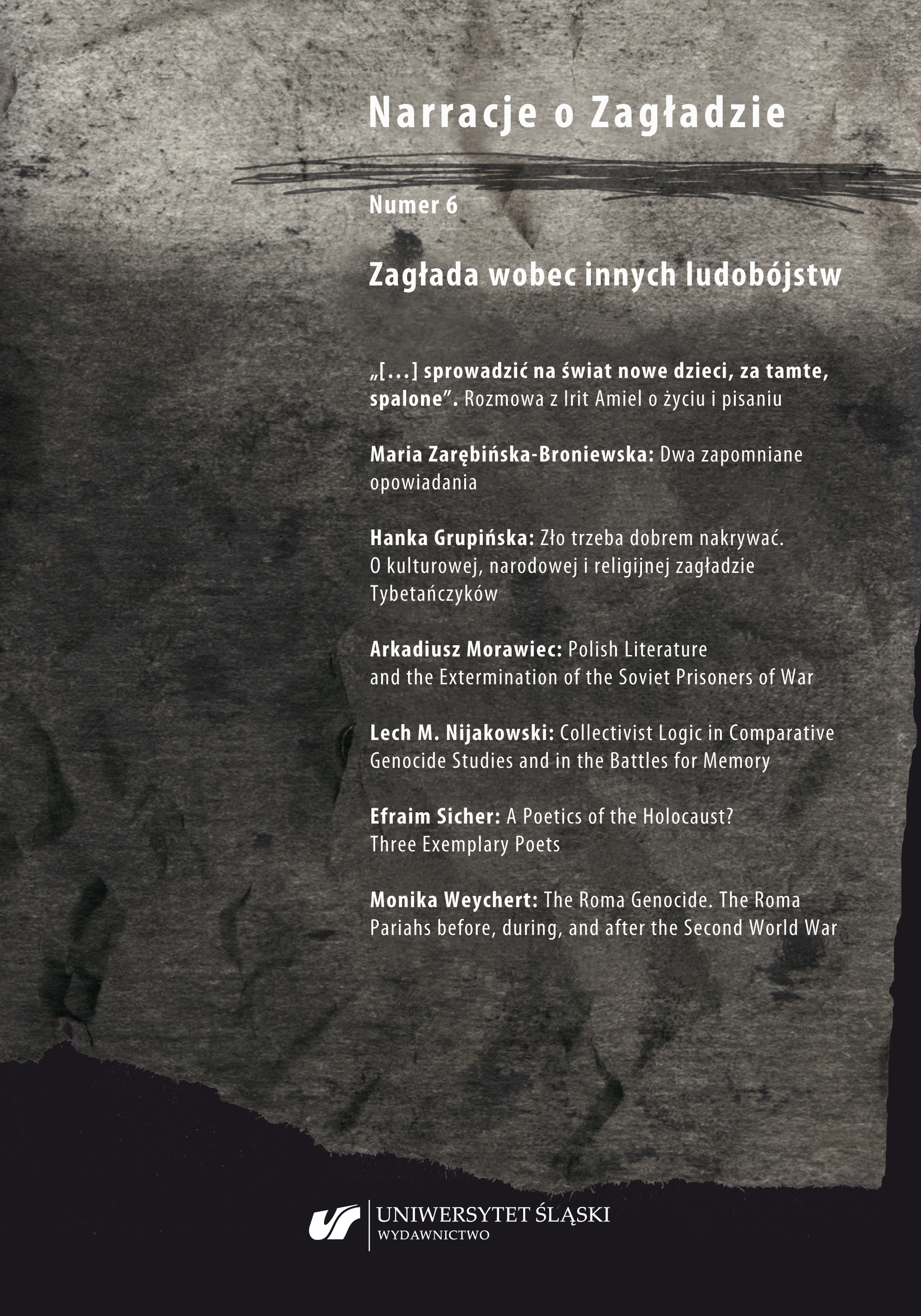Polish Literature and the Extermination of the Soviet Prisoners of War
Polish Literature and the Extermination of the Soviet Prisoners of War
Author(s): Arkadiusz MorawiecSubject(s): Polish Literature, Fascism, Nazism and WW II
Published by: Wydawnictwo Uniwersytetu Śląskiego
Keywords: Polish literature; theme; motif; genocide; Nazi crimes; war crimes; Soviet prisoners of war
Summary/Abstract: The article addresses the motif (and theme) of the Soviet prisoners of war in Polish literature. It presents historical facts which have inspired literary representations of events concerning the complex fates of the Soviet POWs both during the German-Soviet war (1941–1945) and after it came to its end. It also offers a discussion on the political and ideological determinants of the literary portrayal of the prisoner of war. Texts subjected to analyses include both works of fiction and memoirs, such as, among others, Igor Newerly’s Chłopiec z Salskich Stepow (The boy from the Steppes of the Sal), Seweryna Szmaglewska’s “Zagrycha” (The snack), or Wiesław Kielar’s Anus Mundi. 1,500 Days in Auschwitz/Birkenau. Particular attention is given to Wisława Szymborska’s poem “The Hunger Camp at Jasło” (“Obóz głodowy pod Jasłem”).
Journal: Narracje o Zagładzie
- Issue Year: 2020
- Issue No: 6
- Page Range: 115-139
- Page Count: 25
- Language: English

